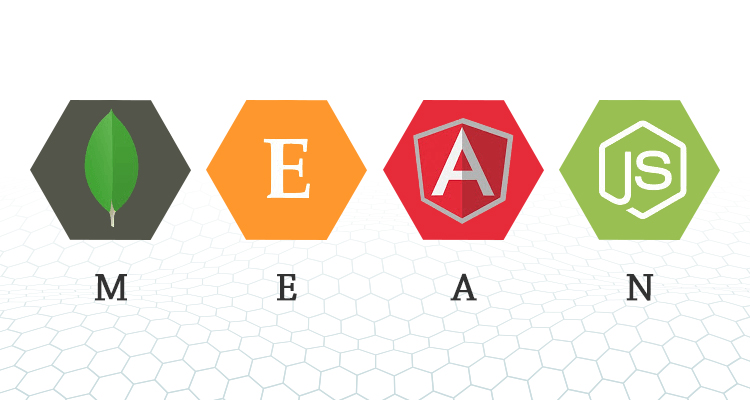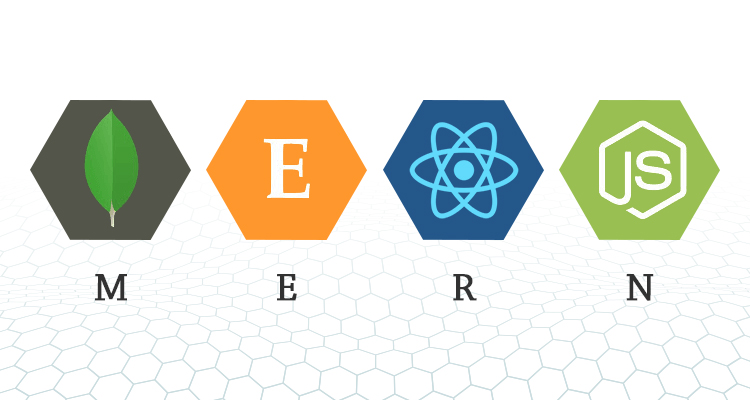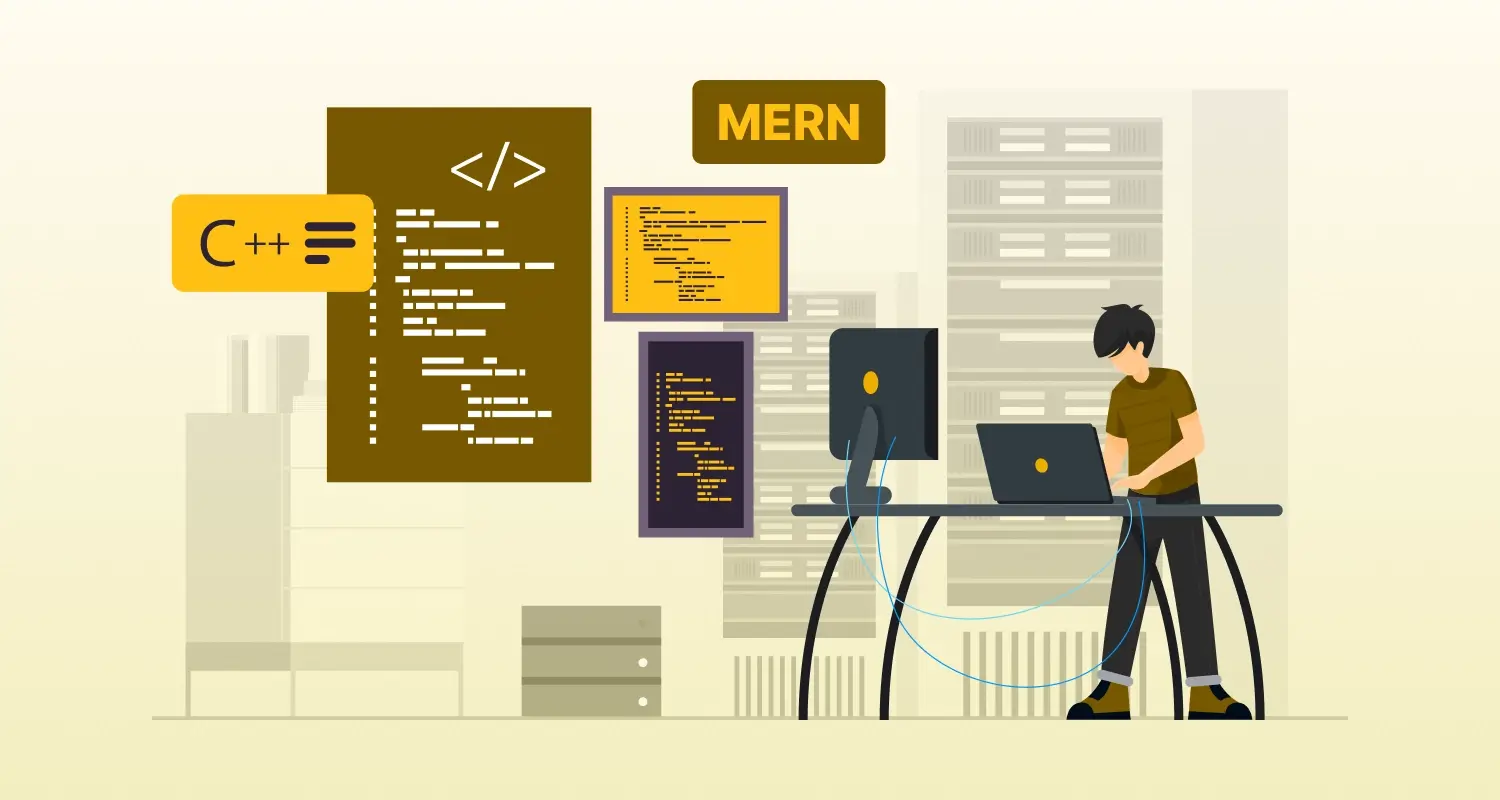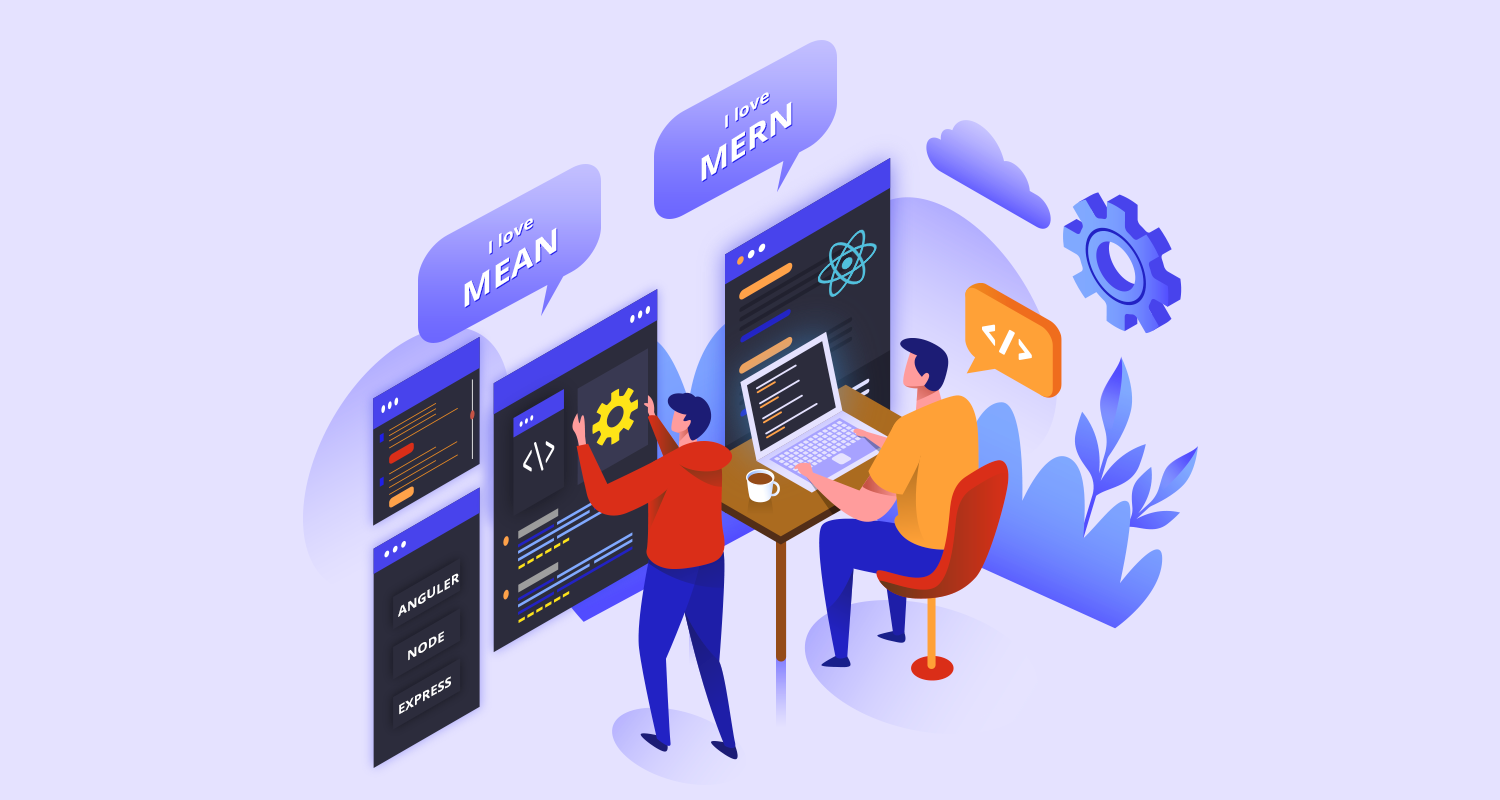Over the years, website design has evolved through a series of changes and value additions. After going through a lot of design and development experiments, finally, websites have started to focus on faster loading time, easy and simple user experience and mobile-friendliness. Well, these are the modern criteria that most web developers follow. Moreover, users increasingly expect websites to deliver user experience comparable to native mobile apps.
Naturally, to deliver all these attributes the old web development technologies comprising HTML, JavaScript and CSS are no longer enough. This is why sophisticated and time-tested tech stacks for delivering rich user experience are more preferred by the developers. MEAN and MERN are two of these technology stacks that are widely in use for web development.
What MEAN and MERN Stacks Amount To?
MEAN stack comprises of 4 key web development technologies such as MongoDB, ExpressJS, Angular, and NodeJS. MERN stack, on the other hand, comprises of web development technologies like MongoDB, ExpressJS, ReactJS, and NodeJS. The only difference between the two stacks is the presence of Angular in MEAN stack and ReactJS in MERN stack. While an Angular Development Company USA generally will prefer using MEAN stack, a company with React expertise will opt for MERN stack.
So in total, 5 technologies make up these two tech stacks. Let’s have a brief look at these key constituent technologies pertaining to both stacks.
- MongoDB common to both stacks is a NoSQL class-platform, and document-oriented database program.
- Express or Express.js is the open-source web application framework that works as the de facto framework for Node.js.
- Angular is the open-source web application framework built and maintained by Google.
- Node.js is the JavaScript framework for server-side or backend development.
- React is the JavaScript-based front-end library built and maintained by Facebook which is widely used for UI development.
The Key Benefits of MEAN Stack
MEAN stack is in use for building web applications for quite some time. Over the years, it has gained a reputation as one of the reliable tech stacks for building sophisticated web applications and even MEAN is popular for progressive web apps development. Let’s explain some of the key benefits of MEAN stack.
- MEAN stack allows easily switching between client and server side of the application. This is why MEAN is so fast-paced in performance.
- When you need to transfer the code written with another framework, MEAN offers maximum ease.
- MEAN stack is great in flexibility and ensures easy testing on cloud platform after the development process comes to an end. Adding more information by simply adding more fields becomes easier with MEAN stack.
- MEAN stack is also highly cost-efficient technology stack as it only requires developers having expertise with JavaScript. This also helps in taking onboard a very less number of developers.
- Each of the constituent technologies in MEAN stack comes as a free and open source. This further helps with low-budget development benefits.
The Key Benefits of MERN Stack
Though MEAN stack enjoyed overwhelming popularity among web developers for years, it is the coming of the React or Reacts Native that openly thrown a challenge to the Angular framework in MEAN stack. Soon, because of the component-based approach to React, it became a popular choice in place of Angular. Thus MERN stack emerged. Let’s have a look at the key benefits of MERN stack.
- React with its component-based approach that can maintain and render components on its own offered developers the reusability of the code. This ensures faster and easier app development.
- Just because React framework is capable to run on servers it is a great framework to run the same code on the browser as well as the server.
- Just as it is with the MEAN stack, all the constituent technologies of the MERN stack come as open source and completely free. Moreover, with a robust React community ready to help you in different junctures, this stack comes as complete and self-sufficient.
- MERN stack can take care of the entire development cycle starting from the front-end development to the back-end or server-side development.
- MERN stack also supports the Model View Controller or MVC architecture which allows smooth and seamless development process.
- MERN stack also offers a robust and pre-built set of testing tools.
- Unlike Angular, React is a full-bodied library. This gives React more flexibility to allow doing things in the way developers prefer.
How to Make A Choice Between MEAN Stack v/s MERN Stack?
The real difference between the two stacks appears in terms of the capability of Angular and React. Now, both Angular and React enjoy supports like great documentation, tutorials, coding examples and community help from developers worldwide. But still, they boast some significant differences.
Performance
AngularJS after evolving through several subsequent versions finally has reached stability with one single final version called Angular which is highly regarded as a superb JavaScript-based MVC framework. It helps developers with better organising capability. In contrast, React because of its component-based approach helps faster development. Moreover, as a library, it is more robust and flexible.
Ease of Managing Code:
This is where MEAN stack enjoys a clear lead over the MERN stack. Though React offers a more flexible rendering capability, the MVC architecture of MEAN helps to keep the UI code separate with a different layer. This ensures easier code management.
Using Third Party Libraries:
For Building any robust, multifaceted or enterprise-grade application you need to use a variety of third-party libraries. Angular having ready to use features such as support for “$http” can easily connect backend servers of third-party libraries. React, on the other hand, requires additional libraries to incorporate such third-party calls. This is why for adding extra features React requires additional configuration while Angular seems to be well-contented.
Conclusion
As far as the above discussion goes, both MEAN and MERN stacks appear to be highly efficient frameworks for faster development of front-end web apps. When you need to build high-performance and lightweight JavaScript applications with all the advantages of a modern web application, both the stacks offer pretty great options. But as it seems, both have major differences in terms of structure and information architecture. MEAN allowing better organisation is a better option for large and enterprise-grade applications while MERN thanks to reusability of the code and component-based approach comes as a more efficient choice for smaller applications.









